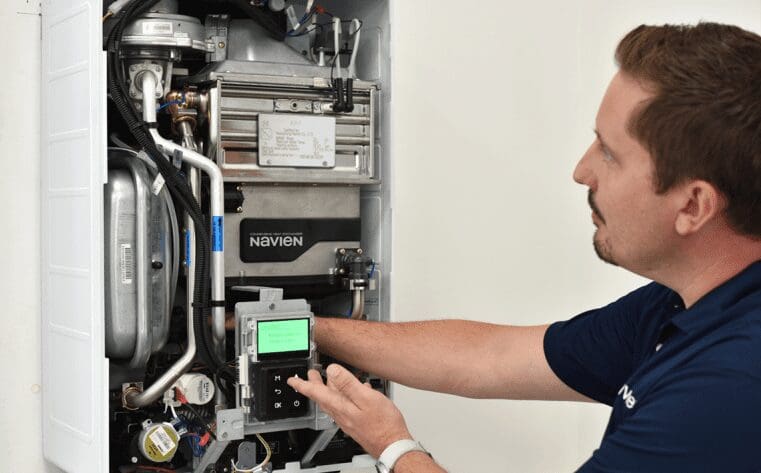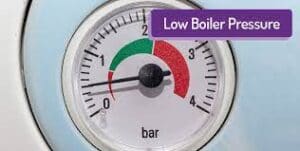“Heating Issue Signs: How to Spot Problems Early and Avoid Costly Repairs”
As the temperatures in the UK drop and we start leaning on our heating systems to keep our homes warm and cosy, it’s vital to ensure everything is running smoothly. The last thing anyone wants is a sudden breakdown when it’s coldest outside—and when repair costs can quickly spiral out of control.
Fortunately, your heating system often gives you subtle (and sometimes not-so-subtle) signs of trouble long before it completely fails. Catching these signs early can save you money, time, and a lot of frustration. Let’s dive into the most common early indicators of heating issue signs and what you can do about them.
1. Unusual Noises: Clangs, Bangs, and Whistles
Your boiler or heating system should generally operate quietly in the background. If you start hearing odd noises like banging, clanging, whistling, or gurgling, it’s a clear red flag.
- Banging or Clanging: This could indicate air trapped in the system, a faulty pump, or even limescale buildup (often referred to as “kettling”).
- Whistling or Gurgling: These sounds might suggest trapped air or low water pressure.
- Sudden Loud Noises: If a component is failing, such as the fan or motor, you may hear unexpected loud noises as they struggle to work.
What to do:
Don’t ignore these sounds. Bleed your radiators to see if it resolves the problem. If the noises persist, call a professional heating engineer to diagnose and fix the issue before it worsens.
Heating Issue Signs To Avoid Costly Repairs!
2. Inconsistent Heating Across Rooms
Are some rooms in your home toasty warm while others remain chilly no matter how high you set the thermostat? Uneven heating can signal several issues:
- Blocked Radiators: Dirt and sludge buildup inside the system may prevent water from flowing freely.
- Air in the System: Trapped air pockets often cause radiators to heat unevenly.
- Thermostatic Valve Issues: If the thermostatic radiator valves (TRVs) aren’t working correctly, they could block heat from reaching certain rooms.
What to do:
Check if radiators need bleeding or flushing. If your radiators still don’t heat evenly after these steps, consider having the system professionally flushed out. This process, called a power flush, can restore proper flow and efficiency.
p.s : During an annual boiler service, the heating engineers should be cjhecking to ensure that the quality of the water in the heating system is acceptable. Ask your engineers to check this as not everyone incorporates this into a boiler service.
Heating Issue Signs To Avoid Costly Repairs!
3. A Sudden Spike in Your Energy Bills
Heating accounts for a significant portion of energy usage in most UK households, so if you notice an unexplained increase in your gas or electricity bill, your heating system may be to blame.
- Declining Efficiency: Older or poorly maintained systems work harder to achieve the same level of heating.
- Wasted Heat: If your boiler isn’t running efficiently, it could be wasting energy instead of converting it into heat for your home.
What to do:
Monitor your energy bills regularly. If your consumption is steady but costs are increasing, have your heating system inspected. A boiler service, or even upgrading to a modern, energy-efficient boiler, could save you money in the long run.
If you are in need of a new boiler and would like some information on which boiler is right for your property, click here for more info.
Heating Issue Signs To Avoid Costly Repairs!
4. Pilot Light Problems
Your boiler’s pilot light is a key indicator of its health. Ideally, the flame should burn blue.
- Yellow or Orange Flame: This could mean your boiler isn’t burning fuel efficiently, which might lead to carbon monoxide buildup—a serious safety risk.
- Flickering or Irregular Flame: A flame that struggles to stay lit may point to an issue with the gas supply or the thermocouple.
What to do:
If you notice a change in the colour or stability of your pilot light, switch off your boiler immediately and call a Gas Safe registered engineer. They can assess the issue and ensure your system is safe. Need to find a gas safe registered engineer in your area, click here.
Heating Issue Signs To Avoid Costly Repairs!
5. Frequent Cycling On and Off
If your heating system keeps switching on and off in short cycles (a phenomenon known as short cycling), it’s working inefficiently and could be heading for trouble.
- Thermostat Issues: Your thermostat may not be reading temperatures correctly, causing the system to turn on and off unnecessarily.
- Overheating Boiler: If the boiler overheats, safety mechanisms may shut it down temporarily.
- Blocked Filters or Valves: These can cause restricted water or air flow, leading to short cycling.
What to do:
Check your thermostat’s settings and ensure it’s positioned correctly (not in direct sunlight or near drafts). If the problem persists, call a professional gas engineer to inspect the system.
Heating Issue Signs To Avoid Costly Repairs!
6. Leaking or Dripping Water
Any sign of water where it shouldn’t be around your boiler or radiators is a clear warning sign.
- Internal Corrosion: Over time, pipes and radiators can corrode, leading to leaks.
- Pressure Issues: If your boiler’s pressure is too high, the pressure relief valve may release excess water.
- Faulty Seals: Worn-out seals in the boiler could allow water to escape.
What to do:
Check your boiler’s pressure gauge and reduce it if necessary. For persistent leaks or boiler breakdowns call your local gas engineer to identify and resolve the source of the problem.
Here is a picture of a badly maintaimed boiler that needs replaced. Don’t let your boiler get like this, get it serviced annualy.
Heating Issue Signs To Avoid Costly Repairs!
7. Thermostat or Control Malfunctions
If your thermostat isn’t responsive or the settings don’t seem to match your home’s temperature, your heating system could be working harder than necessary.
- Old or Outdated Controls: Older thermostats may struggle to function accurately.
- Wiring Issues: Loose connections or electrical problems can prevent proper communication between the thermostat and the boiler.
What to do:
Try replacing the thermostat’s batteries or resetting it according to the manufacturer’s instructions. For ongoing issues, upgrading to a smart thermostat can give you greater control and efficiency.
8. Constantly Low Boiler Pressure
A healthy heating system should maintain stable pressure. If your boiler pressure keeps dropping, there could be a hidden issue.
- Leaks: Even small leaks in the system can cause pressure to drop gradually.
- Faulty Expansion Vessel: A malfunctioning expansion vessel can disrupt the system’s ability to maintain consistent pressure.
What to do:
Top up your boiler’s pressure using the filling loop and monitor it closely. If the pressure continues to drop, call your local professional gas engineer out to diagnose the issue.
Heating Issue Signs To Avoid Costly Repairs!
9. Ageing System Components
Finally, consider the age of your heating system. Boilers and radiators have a finite lifespan—usually around 10-20 years depending on the quality of the boiler and if it gets regular maintenance.. Older systems are not only less efficient but also more prone to breakdowns.
What to do:
If your boiler or heating system is approaching the end of its lifespan, start planning for a boiler replacement. Modern systems are significantly more energy-efficient and can save you money on repairs and running costs.
Summary
The key to avoiding costly boiler repairs is simple: Pay attention to your heating system, address small problems early, and schedule regular maintenance checks with a qualified professional.
Being proactive about these early warning signs can keep your home warm, your energy bills manageable, and your heating system in good health for years to come. If you’re ever in doubt, don’t hesitate to call in an expert—it’s always better to be safe than sorry!
Stay warm and stay informed. 😊





